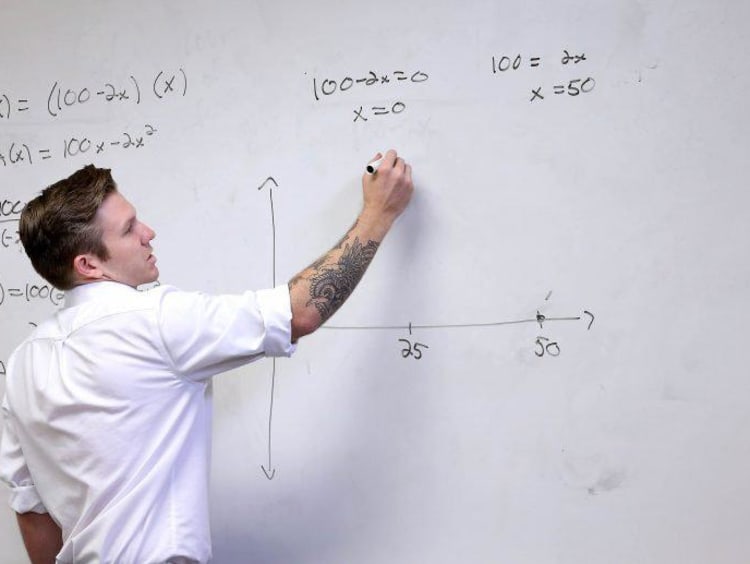4 Reasons Why Teaching Math Is More Important Than Ever

If you love math, your knowledge, skills and interests are highly sought after in this increasingly tech-savvy age.
When you were sitting in your middle school math class, did you consider a job in programming for gig-economy sites like Uber or Airbnb? Probably not. But math teachers are even more likely to play a role in these unknown future careers because they will likely be tech-based. And what is tech, really, but a lot of logical thinking and ones and zeros?
Why Math Teachers Are So Important
Teaching math can be difficult because so many students have ideas about how they’re “bad at math” or they “won’t use math” when they’re older. But great math teachers can show students how much they can and will use math every day. Here are some other reasons why teaching math is so important.
1. STEM-related jobs are the future.
Students need solid math skills as they head to the future. Science, technology, engineering and math careers are growing quickly. Other countries outrank American students in math and science studies. So when the U.S. needs to hire qualified workers in emerging fields, they have to look overseas. A great foundation in math will help students go far in life.
2. Student debt is a real problem.
Students leaving college are facing astronomical amounts of debt. In order to pay off student loans, students need to understand budgeting and financial literacy. Sure students might not use the quadratic equation in life outside of high school, but they will need to know basic skills and how they figure into making money-wise decisions.
3. Logical thinking is a transferable skill.
Math students learn pattern-seeking and logical thinking. These skills can be used in every job out there. Employers know that not every employee is going to come with subject matter expertise, but they do expect that people can think critically and learn quickly. Math educations builds these very skills.
4. Math teaches kids about failure.
Failure and growth mindset are two big aspects to social and emotional learning. When students fail at something, they can try again or give up. If they try again, the learning process continues. Growth mindset is the idea that competencies, like mathematical fluency, can be learned and is not a fixed set of skills. Math teaches students how to learn something new, something they can’t fake their way through. These lessons stay with students forever.
To learn more about how Grand Canyon University’s College of Humanities and Social Sciences provides future math educators with the best tools to help the next generation of scientists, engineers, and technologists, visit our website or click the Request More Information Button on this page.
The views and opinions expressed in this article are those of the author’s and do not necessarily reflect the official policy or position of Grand Canyon University. Any sources cited were accurate as of the publish date.


